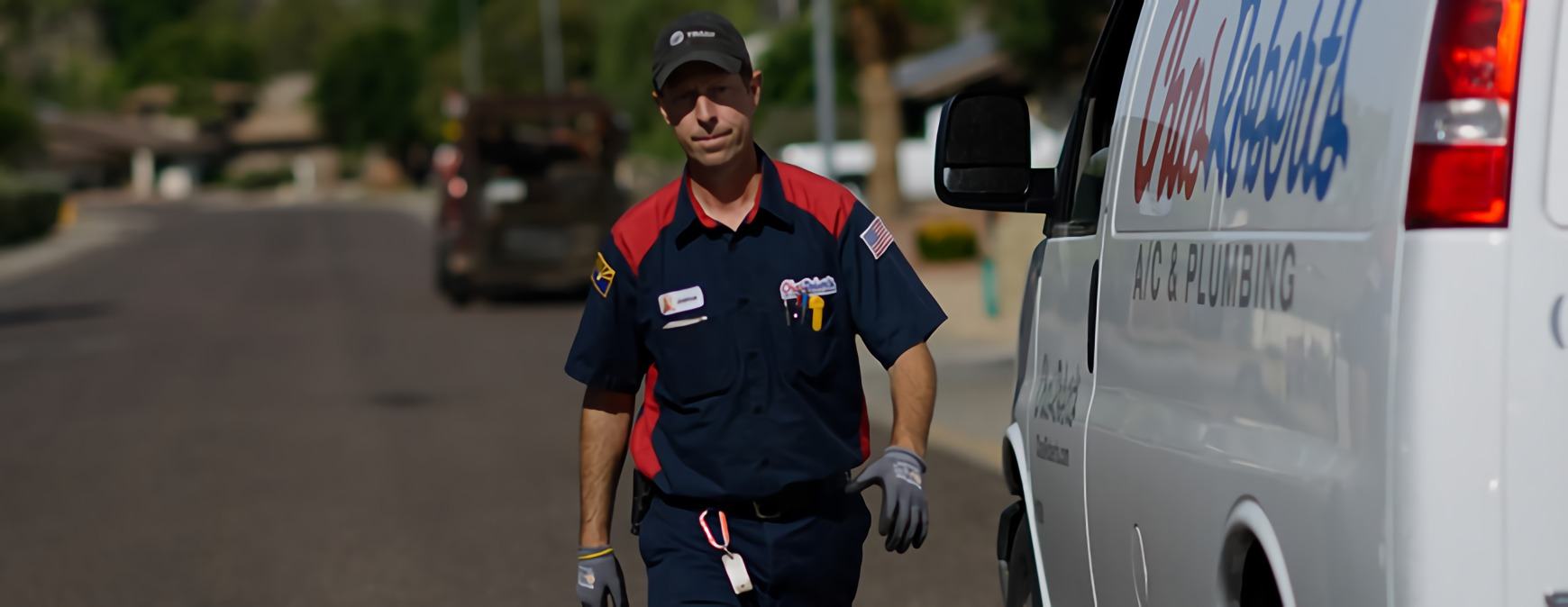RSI is a Great Training Option for Everyone
Learn more about how we can prepare you to advance your career.
Soon you will finish your HVAC training and enter the field. Depending on where you work, you could make service calls to customers’ homes. Since customers often assume the appearance and professionalism of a technician is a reflection of the company and the technician’s skills, it’s important for you to make a good first impression. Keep the following tips in mind when working in customers’ homes. 1
Do’s and Don’ts of an HVAC Service Call
1. Professional Appearance:
Do Appear clean-shaven and well groomed.
Do Wear a clean work uniform or work clothes. Keep a clean shirt or two in your vehicle in case yours becomes soiled on the job.
Do Cover up tattoos and body piercings.
Don’t Wear clothing with controversial or offensive messages on them.
Get Started on the Path to a New Career
Fill out our form to learn how we can help you change your life.
Don’t Drive a dirty work van. Your vehicle is a rolling billboard for your company. Represent it well.
2. Work Habits:
Do Ask customers where they would like you to place debris such as HVAC components or ductwork from the job site. 2
Do Keep the workspace clean. Place drop cloths under furnaces or attics to catch debris. Keep a handheld vacuum with you to pick up dirt and particulate. Wipe down equipment when the job is complete.
Do Stay hydrated during the hot season by drinking plenty of water and sports drinks.
Don’t Track dirt into a customer’s home or leave a trail of footprints on the lawn. Avoid walking in mud and clean dirt off from shoes. If your employer provides them, wear paper shoe covers if you don’t have time to wipe off your shoes.
Don’t Fill customers’ trash bins with packaging from an installation or new equipment.
Don’t Accept alcoholic beverages from customers on the job. They could blame faulty work or perceived unprofessionalism on your drinking.
3. Communication:
Do Offer a warm smile and a firm handshake and make eye contact when you meet the customer.
Do Communicate clearly, both verbally and when writing invoices. Consider a personal digital assistant if your spelling and grammar is not the best.
Do Educate customers about the issue with their HVAC system. Explain which component failed, why it failed, and their options for fixing it.
Do Offer the customer an estimate of the cost of repairs.
Don’t Assume customers know the same technical HVAC information that you do. Listen carefully to how they relate the problem with their system, and do your best to explain the issue to them in terms they’re likely to understand.
Don’t Criticize the work of the technician who serviced the unit before you. It makes you look unprofessional. Plus, you could unknowingly damage the reputation of a coworker or even your own company.
Don’t Make unexpected or additional repairs without asking the customer to sign off on them first.
HVAC Service for Life
HVAC customer service is built on communication, understanding, and respect.
Since the home is a special place for many families, it’s important for HVAC technicians to respect the space as much as their customers. A professional appearance, tidy working habits, and clear communication are just a few ways you can achieve this—and hopefully turn that first service call into years of repeat business!
Additional Sources
1 – Title: Fundamentals of HVAC; Authors: Carter Stanfield and David Skaves; Air-Conditioning, Heating, and Refrigeration Institute; Second Edition; Textbook page 15-16
2 – http://www.achrnews.com/articles/131340-customer-service-training-is-essential-for-hvac-technicians
This blog has been labeled as archived as it may no longer contain the most up-to-date data. For a list of all current blog posts, please visit our blog homepage at https://www.rsi.edu/blog/




